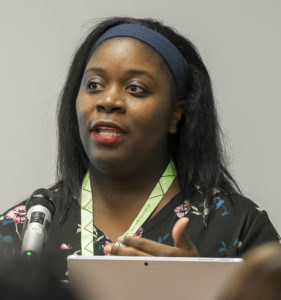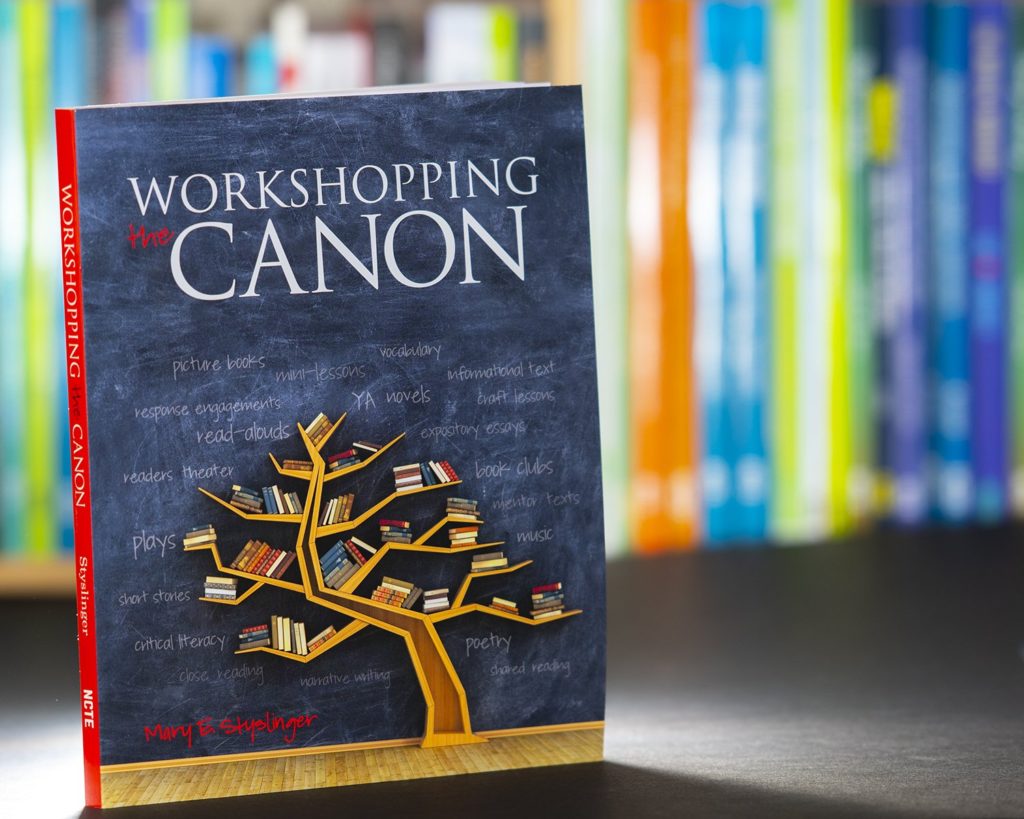This post was written by NCTE member Vikki Orepitan.
I think this week has been my favorite! The conversations in the NCTE Reads Facebook group were lively and inspiring! Participants have shared so many resources and ideas, and I’m so excited about my expanded “To Read” list.
Our focus this week was on the “Need to Write” (chapter 7) and the “Workshopping Process” (chapter 8). School starts for me in just under two weeks, so my teaching partner and I have been deep in the scope and sequence process. I really appreciate that Mary Styslinger takes the time in Workshopping the Canon to explain the planning process and how things can fit together.
Styslinger addresses the question “Why Writing?” at the beginning of chapter 7, and her response really struck a chord with me: “40 percent of high school seniors never or rarely write a paper of three or more pages” (118).
In 2013, I moved back to the US after teaching for two years in an international private school. I was thrilled to be “back home” where I knew the kids, the culture, the lay of the land. But as the first semester wrapped up, and my students triumphed over their first real research paper (historical/cultural perspective paper analyzing The Canterbury Tales), I realized something alarming—we were the only English class writing a research paper. My PLC that year had agreed “we should definitely write a research paper,” and I was excited because I’d been preparing my kids for this kind of writing all semester!
The “research paper” in one teacher’s class was 250 words describing a favorite character from The Canterbury Tales and the other was a “Shmoop-inspired PowerPoint.” My students were furious, and I was upset and confused. The definitions of research and writing hadn’t changed, but the expectations had. That was the first and last year my campus assigned me academic (on-level rather than honors) classes as well as the last time they assigned me seniors. My personal experience supports Styslinger’s claim that “[students] need more opportunities to write”.
Styslinger and the teachers in the NCTE Reads study agree that writing is for everyone and that it should be pervasive. I have been guilty of focusing on the analytical reading of a text, quizzing and testing over its “essential parts” and then assigning a literary analysis essay near the end of the unit.
However, writing is not just a formal essay at the end of a unit. It shouldn’t feel “tacked on.” Our facilitator, Lisa Fink, asked us, “In what ways do you interweave the teaching of reading with the teaching of writing in your classroom? How do you support writing both as a process and as a product?” and I really struggled with this one.
I use QuickWrites (infrequently) and writing as warm ups (often, but also usually unrelated to the unit focus), so I wasn’t sure that I do interweave the two. The responses of other teachers gave me a lot to think about as well! Lauren emphasized the need for balance “particularly when it comes to going beyond low-stakes writing and getting into creating a product for the unit . . . making the writing product a living, breathing task DURING the reading that then gets refined and workshopped again at the END of the unit.”
I think Kim’s response strikes at the center of WTC, “having and working [with] an essential question [is] really helpful . . . [because] if they [students] engage thoughtfully . . . there’s much less work to do at the end! And if the end product is authentic . . . it reduces class management issues and raises learning.”
We all want our students to grow as readers, writers, and thinkers—and with WTC, Styslinger gives us one example of how.
In her summative interview with Lisa Fink, she went on to say that “teachers are too hard on ourselves” when it comes to our classroom expectations. Styslinger encourages us to “try something and celebrate our effort.” My mentor teacher once told me that it takes at least 3 years of teaching the same subject to feel “comfortable,” so I think Styslinger is right!
Changing the content/structure of your course is a monumental task. So the “small steps” Styslinger suggests make it significantly more manageable. She suggests starting with adding supplemental or additional texts, collecting data, and “see[ing] how it goes.” I, for one, am trying to do exactly that! I’ll let you know how it turns out!

Vikki Orepitan is a 9th grade Pre-AP English teacher at Cinco Ranch High School in Katy, TX. This year she was awarded the Mercedes Bonner Leadership Award by TCTELA (Texas Chapter of NCTE) as well as the NCTE Intellectual Freedom Award for publicly opposing her district’s ban of Angie Thomas’s novel, The Hate U Give. She has taught multiple levels of English as well as Ethics (Civics) to students in Abu Dhabi and in Texas in grades ranging from 7 to 12. Inspired by her childhood teachers, her college instructors, and her mentors, she wishes to empower educators (and students) to challenge injustice and model leadership in their communities.

